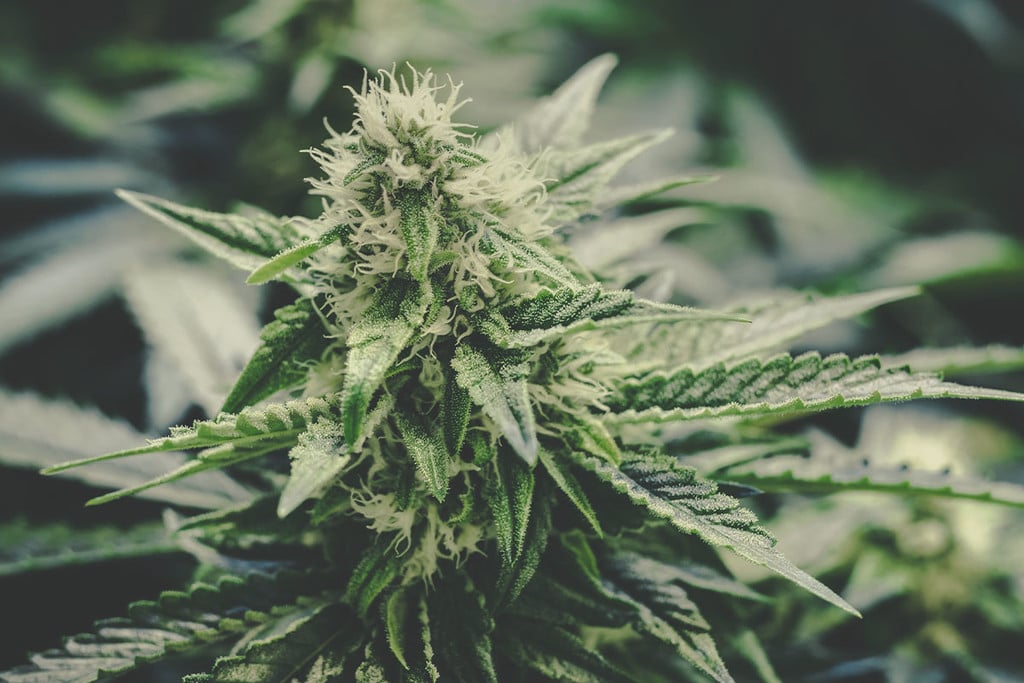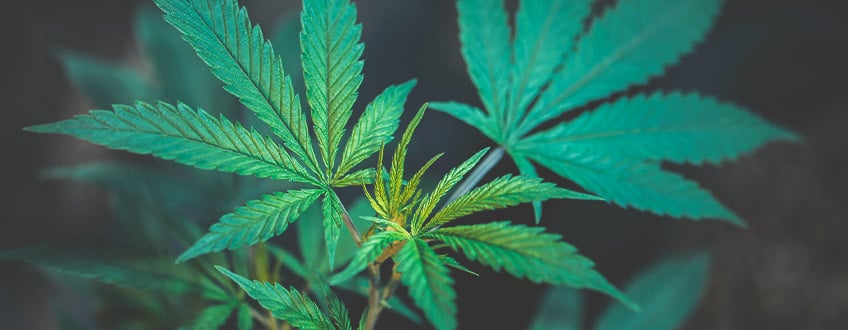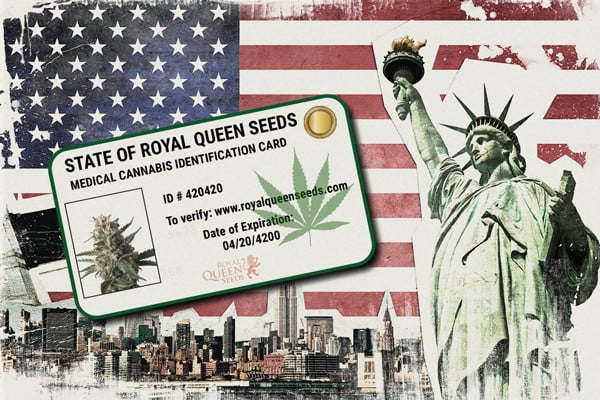.

Medical Cannabis: 10 Pros And Cons Of Medicinal Marijuana
Cannabis is a powerful plant with a promising therapeutic potential. Unfortunately, our understanding of this ancient plant is still very limited, meaning we're still a ways away from seeing that potential exploited to its maximum. Here are 10 benefits and drawbacks of medical cannabis as we know it today.
New studies involving cannabis and its derivative compounds are changing the way we view illnesses and their current treatments. But just how far do the benefits of medical cannabis reach, and what potential disadvantages are there to using cannabis to treat illness?
THE BENEFITS OF MEDICAL CANNABIS
The idea of cannabis as a medical substance has increased in favour dramatically, but conclusions on the plant’s full scope of medicinal efficacy have yet to be made. Below, we discuss some of the potential benefits of medical cannabis.
1. Cannabis Is a Natural and Adaptable Plant With a Diverse Composition and Different Administration Options
The first major benefit of medical cannabis is that you can cultivate it at home. Cannabis can grow on six of the seven continents, and anthropological evidence suggests it could be one of humankind’s oldest cultivars.
Cannabis is also a versatile plant, and its chemical constituents can be extracted and concentrated into various forms, making for a wide assortment of administration options. Researchers are exploring which of the cannabis plant’s cannabinoids, terpenes, and other compounds can be used alone, or jointly, to benefit patients.
2. CANNABIS HAS BEEN USED MEDICINALLY FOR THOUSANDS OF YEARS
Historical records suggest humans have cultivated cannabis for thousands of years, using the plant for industrial purposes and as part of Indian and Chinese traditional medicine. The Pen Ts’ao, published in the 1500s and believed to be one of the oldest pharmacopeias in the world, recommends cannabis[1] for pain, constipation, malaria, and more.
3. CANNABIS, INFLAMMATION AND PAIN
Pain and inflammation are both signs and symptoms of a wide variety of conditions. Recent studies suggest that chronic inflammation could be relevant to the development of coronary disease, diabetes, cancer, and even Alzheimer’s. In an article titled “Inflammation: A unifying theory of disease[2]”, Harvard Medical School calls out chronic inflammation as “the common, causative factor in many diseases”.
Many of the compounds found in cannabis, including cannabinoids like THC and CBD[3], but also terpenes like myrcene, limonene, linalool, and more, have demonstrated its anti-inflammatory properties[4]. Since discovering the endocannabinoid system’s key role[5] in managing inflammation, several researchers have focused on cannabis’ potential to drive down inflammation caused by ulcerative colitis[6] or Alzheimer’s disease, as well as its promise for patients affected by pancreatitis.

4. CANNABIS AND PTSD PATIENTS
According to the Recovery Village[8], 1 in 13 adults will develop PTSD in response to experiencing a traumatic event. Many of these patients may turn to cannabis to deal with the symptoms associated with this condition.
Unfortunately, most of the evidence regarding cannabis use among PTSD patients comes from anecdotal reports rather than more sophisticated clinical trials. There is some research, however, to suggest that PTSD patients have both an abundance of cannabinoid receptors[9] and reduced endocannabinoid levels[10] in the circulatory system.
Research also shows that the endocannabinoid system is heavily involved in managing memory and learning processes[11], a well as anxiety, fear memory, and habituation[12] (a decline in response to a stimulus after repeated exposure). One study[13] found some PTSD patients who used cannabis to have a reduced risk of depressive episodes or suicidal thoughts.
5. CANNABIS AND SEIZURES
CBD first made international news in 2011, when the story of the late Charlotte Figi touched the hearts of people all around the globe. Today, there’s solid research[14] that CBD, a non-intoxicating compound found in cannabis and hemp, can help reduce seizures associated with Lennox–Gastaut and Dravet syndromes.
Seizures are believed to be triggered by an abnormal firing of neurons. However, in most cases, people with epilepsy don’t have a known cause for their condition. The endocannabinoid system is present in the central nervous system and key parts of the brain related to some kinds of epilepsy. Studies[15] have also found CBD, THC, and THCA, as well as terpenes like linalool, to exert anti-seizure effects.
While we still don’t have a clear understanding of how the compounds in cannabis fight seizures, the research above is starting to provide us with at least some theories.

6. CANNABIS, NAUSEA AND VOMITING
Nausea and vomiting are symptoms we’re all familiar with. They are linked to many different conditions, from something as mild as gastroenteritis to more serious health issues like digestive tumours, central nervous system diseases, and more. Many medications and medical treatments (such as chemotherapy and antiretroviral therapy) can also cause nausea and/or vomiting.
Researchers are currently testing various cannabis constituents, including cannabinoids and terpenes, in studies concerning nausea and vomiting. Investigations are aiming to find out if the molecule’s interactions with serotonin receptors have any effect on these symptoms.
7. CANNABIS, DEPRESSION AND ANXIETY
Cannabis can also have an effect on the mood. Due to that, many people enjoy it recreationally because it makes them feel relaxed, happy, and even euphoric. At the same time, some individuals feel paranoid or anxious when using cannabis, making it difficult to come to concrete conclusions about how marijuana might affect people with anxiety and depression. There is research, however, to suggest a link between cannabis and these conditions.
Research shows that endocannabinoid activity affects the mood, feelings of anxiety or fear, and stress. Some researchers[16] have even gone so far as to suggest that endocannabinoid dysregulation could be involved in clinical depression. Unfortunately, that’s about as far as our understanding of cannabis and depression goes, and most of the support for cannabis as an antidepressant still comes from patient reports.
THE DRAWBACKS OF MEDICAL CANNABIS
While cannabis has a lot of potential as a medicine, it also has some limitations that it pays to be aware of.
8. THERE’S STILL A LOT WE DON’T KNOW ABOUT MEDICAL CANNABIS
Unfortunately, the last 70+ years of prohibition have done us few favours when it comes to understanding cannabis. While there is a lot of promising research on its medicinal potential, a lot of this research comes from cell or animal-based lab studies rather than randomised double-blind placebo-controlled clinical trials. This lack of understanding about cannabis and its mechanisms of action is arguably one of the biggest pitfalls of medical marijuana.
9. RESTRICTED ACCESS
While our attitudes towards cannabis are changing, it is still far from being readily available as a medicine. Medical cannabis is only legal in roughly 30 countries, and some countries are a lot less liberal when it comes to prescribing it than others. In the US, for example, medical marijuana laws vary greatly from one state to another, as do the lists of conditions that possess the medical indication to be treated with cannabis.

10. THC ISN’T FOR EVERYONE
While many people think of it simply as the compound in weed that “gets you high”, there’s a lot more to THC than its psychoactive effect. Unfortunately, the fact that THC produces that iconic high is a limitation in itself. Some people simply don’t enjoy the effects of THC, while others find it makes them paranoid or anxious.
Similarly, some conditions that have been historically treated/managed with THC, like glaucoma, require regular daily doses that would leave patients stoned for the majority of the day, which simply might not be acceptable for all people. For this reason, CBD has gained favour among research circles, not to mention many everyday cannabis users. Its non-intoxicating nature and widespread availability make it a more interesting candidate for study.
THE POTENTIAL, AND LIMITATIONS, OF MEDICAL CANNABIS
As we saw in this post, there are lots of reasons to get excited about the medicinal promise of cannabis and its constituents. Unfortunately, there are still some setbacks to unlocking this ancient plant’s medicinal value. As our knowledge grows, we will hopefully find new ways to use and manipulate cannabis to benefit the body and mind.
Medical DisclaimerInformation listed, referenced or linked to on this website is for general educational purposes only and does not provide professional medical or legal advice.
Royal Queen Seeds does not condone, advocate or promote licit or illicit drug use. Royal Queen Seeds Cannot be held responsible for material from references on our pages or on pages to which we provide links, which condone, advocate or promote licit or illicit drug use or illegal activities. Please consult your Doctor/Health care Practitioner before using any products/methods listed, referenced or linked to on this website.
- History of cannabis as a medicine: a review https://www.scielo.br
- Understanding acute and chronic inflammation - Harvard Health https://www.health.harvard.edu
- Cannabinoids as Novel Anti-Inflammatory Drugs - PubMed https://pubmed.ncbi.nlm.nih.gov
- https://www.ncbi.nlm.nih.gov/pmc/article s/PMC8414653/
- The endocannabinoid system: an emerging key player in inflammation - Search Results - PubMed https://www.ncbi.nlm.nih.gov
- Cannabidiol Reduces Intestinal Inflammation Through the Control of Neuroimmune Axis - PubMed https://www.ncbi.nlm.nih.gov
- https://pubmed.ncbi.nlm.nih.gov/22850623/
- PTSD Facts and Statistics | The Recovery Village https://www.therecoveryvillage.com
- Elevated brain cannabinoid CB 1 receptor availability in post-traumatic stress disorder: a positron emission tomography study | Molecular Psychiatry https://www.nature.com
- Reductions in circulating endocannabinoid levels in individuals with post-traumatic stress disorder following exposure to the world trade center attacks - ScienceDirect https://www.sciencedirect.com
- Endocannabinoid System: the Direct and Indirect Involvement in the Memory and Learning Processes—a Short Review https://www.ncbi.nlm.nih.gov
- The endocannabinoid system in anxiety, fear memory and habituation https://www.ncbi.nlm.nih.gov
- SAGE Journals: Your gateway to world-class journal research https://journals.sagepub.com
- Cannabidiol: A New Hope for Patients With Dravet or Lennox-Gastaut Syndromes - PubMed https://pubmed.ncbi.nlm.nih.gov
- Cannabis Therapeutics and the Future of Neurology https://www.ncbi.nlm.nih.gov
- Role of Endocannabinoid Signaling in Anxiety and Depression https://www.ncbi.nlm.nih.gov






































